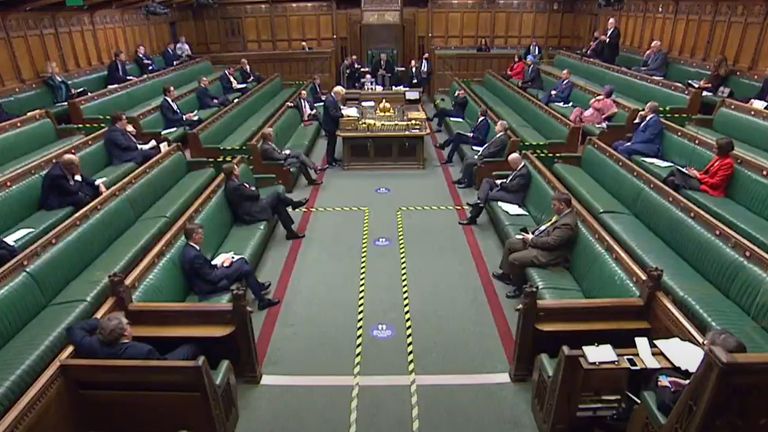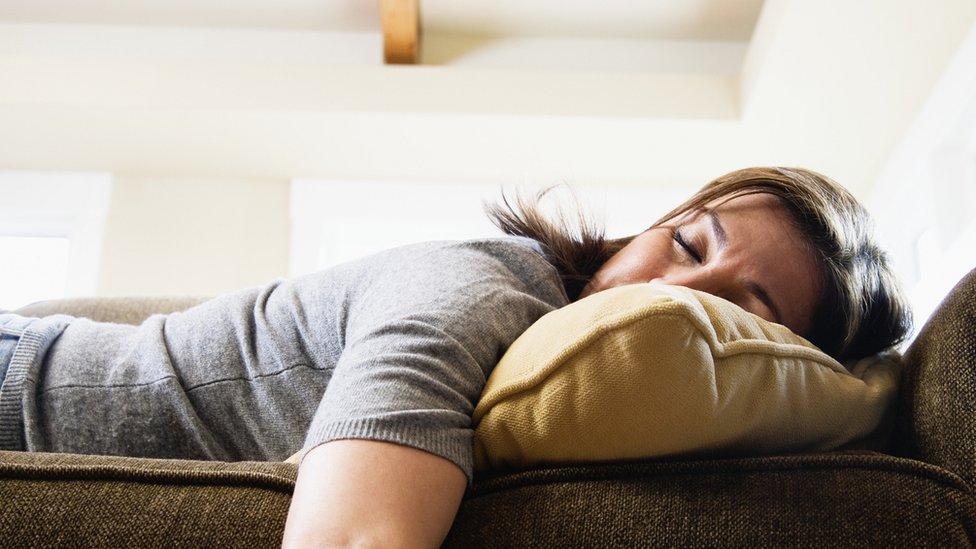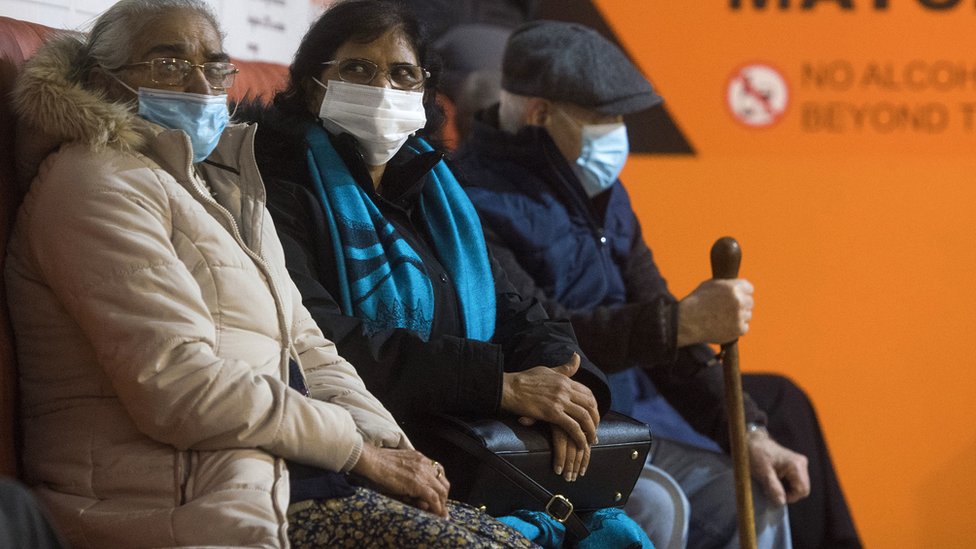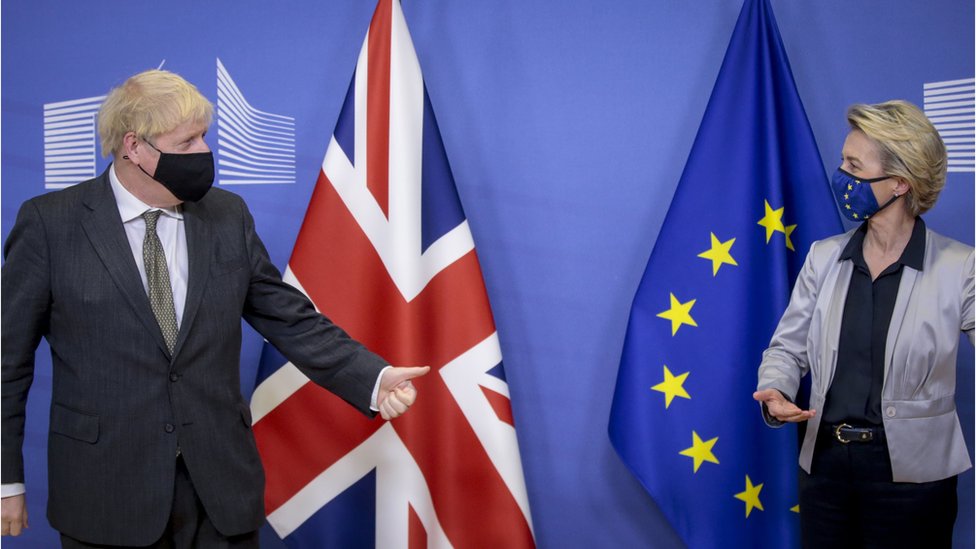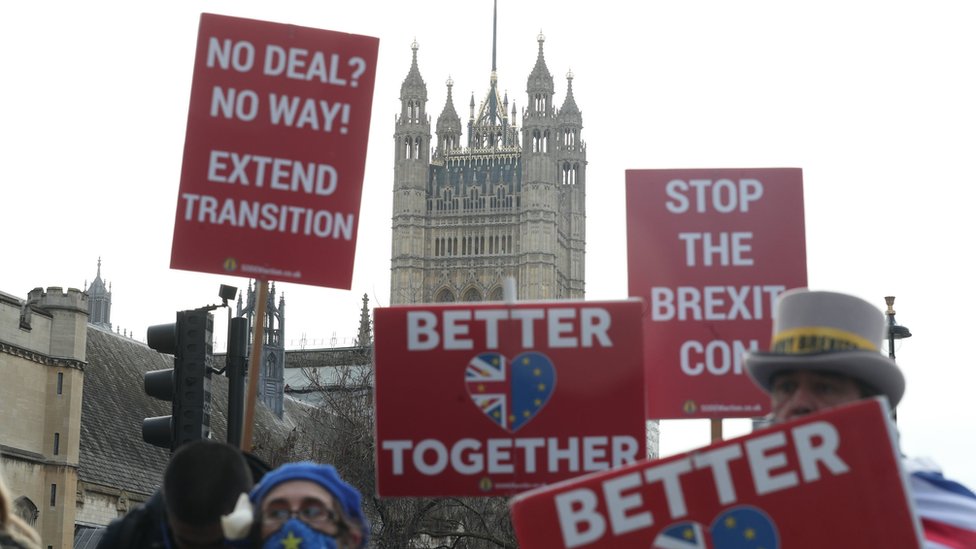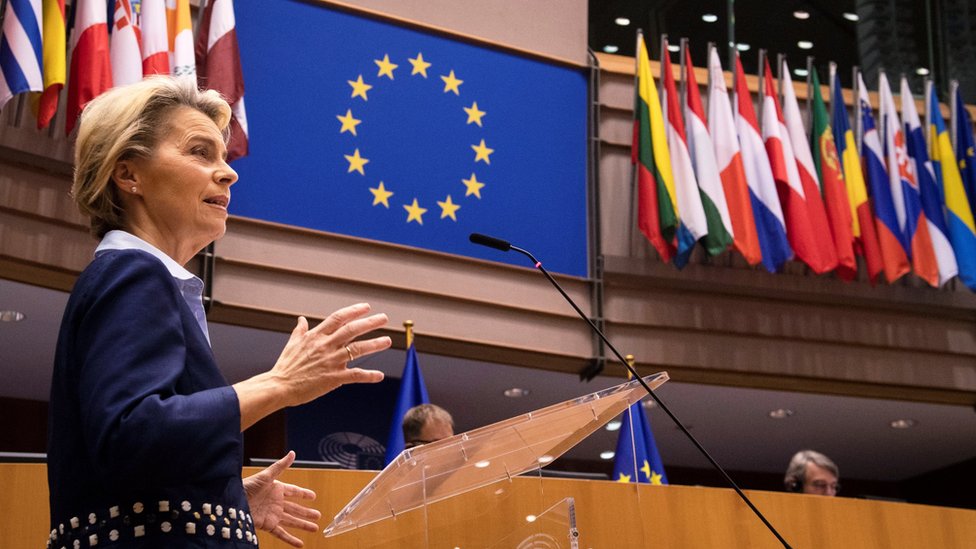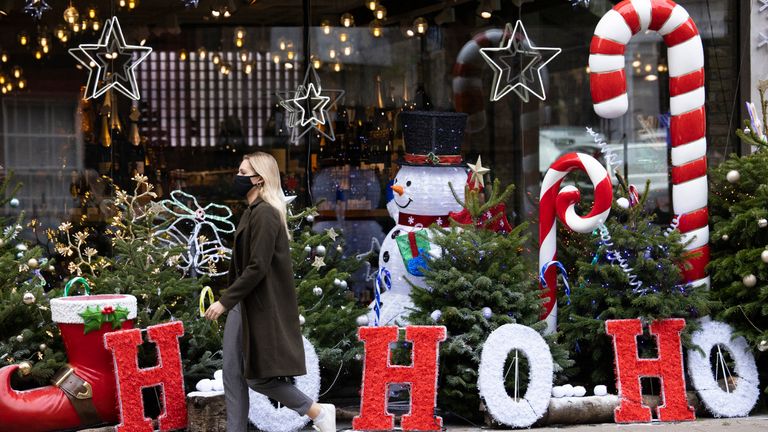MPs will be sent home for the Christmas holidays on Thursday - but could be recalled to Westminster "as early as next week" if a post-Brexit trade deal is agreed, Number 10 has said.
EU and UK negotiators are still yet to breach months of deadlock in talks on a future trade relationship, despite hopes of a possible breakthrough in recent days.
And Downing Street warned that "time is now in short supply to reach an agreement" ahead of the end of the Brexit transition period on 31 December.
"We expect discussions will continue over the coming days," a spokesman said.
Announcing the move for the House of Commons to go into its Christmas recess, Number 10 said that "all the necessary legislation" for the end of the Brexit transition period - barring a possible trade deal - would have completed its passage through parliament by Thursday.
"In the absence of further substantive business, we will - subject to usual approval by the House - go into recess tomorrow, but with the knowledge that we will recall MPs and peers to legislate for a deal if one is secured," the spokesman said.
"That recall could be as early as next week."
The move suggests that Downing Street does not see a breakthrough on an EU-UK trade agreement being reached this week, with 48 hours' notice needed to recall parliament.
However, Number 10 said it was confident that - with just 15 days until the end of the transition period - there would still be time for parliament to approve a trade deal, should one be agreed.
"Parliament has long shown it can move at pace and the country would expect nothing less," the spokesman added.
"The process for recall will align with the process for finalising the legislation for a deal, if one is secured, and no time will be lost.
"Under the recall process, we will adapt the days' proceedings to focus exclusively on the passage of that legislation. This may mean meeting at an earlier time.
"We realise that this duty falls not just on MPs and peers, but on the parliamentary staff that make parliament function, to whom we are very grateful."
Earlier on Thursday, European Commission President Ursula von der Leyen told the European Parliament in Brussels that "there is a path to an agreement now" on an EU-UK deal.
"The path may be very narrow but it is there," Ms von der Leyen told MEPs, as indicated that fishing rights remains a key sticking point but suggested progress had been made on "level playing field" provisions.
The Leader of the House of Commons, Jacob Rees-Mogg, recently claimed a trade deal could be rushed through both Houses of Parliament very quickly.
"You can really, really truncate the parliamentary process if necessary and if there is a will to do it," he said.
https://news.google.com/__i/rss/rd/articles/CBMiiAFodHRwczovL25ld3Muc2t5LmNvbS9zdG9yeS9icmV4aXQtbXBzLXNlbnQtaG9tZS1mb3ItY2hyaXN0bWFzLWJ1dC1jb3VsZC1iZS1yZWNhbGxlZC1hcy1lYXJseS1hcy1uZXh0LXdlZWstdG8tYXBwcm92ZS10cmFkZS1kZWFsLTEyMTY0NTY40gGMAWh0dHBzOi8vbmV3cy5za3kuY29tL3N0b3J5L2FtcC9icmV4aXQtbXBzLXNlbnQtaG9tZS1mb3ItY2hyaXN0bWFzLWJ1dC1jb3VsZC1iZS1yZWNhbGxlZC1hcy1lYXJseS1hcy1uZXh0LXdlZWstdG8tYXBwcm92ZS10cmFkZS1kZWFsLTEyMTY0NTY4?oc=5
2020-12-16 19:07:30Z
52781248888509
